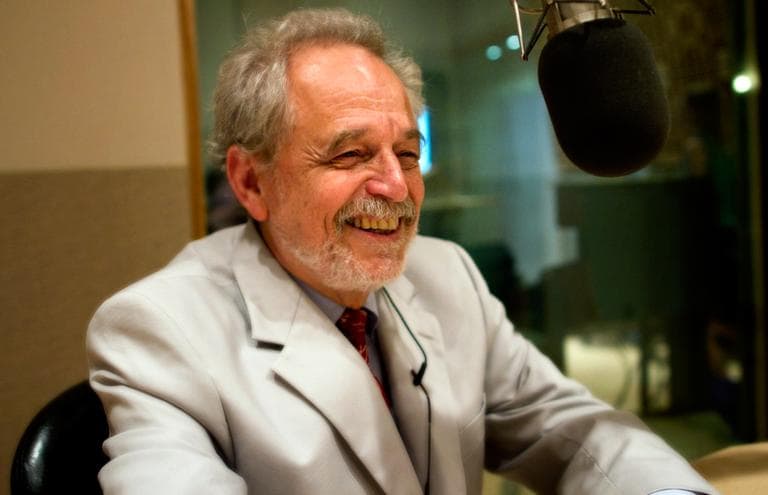Advertisement
Legal Aid Leader Retiring After 20 Years Of Service
Resume
Greater Boston Legal Services is the largest legal aid organization in New England.
Last year, it provided free civil legal representation to about 16,000 low-income people in the Boston area, as well as to community groups. Its court victories have included forcing the MBTA to improve access to the T for people with disabilities and winning an $850,000 settlement against the Michael Bianco factory in New Bedford for cheating its immigrant employees of overtime pay.
Now, the man who's led Greater Boston Legal Services for the past 20 years is retiring.
Bob Sable has spent his entire career working in legal aid, and when WBUR's All Things Considered host Sacha Pfeiffer spoke with him on Monday, she asked him why — rather than ever work in private practice — he chose to make that sacrifice.
Bob Sable: I guess I don't really think of it as a sacrifice. I certainly made less money, but for me the important thing was work that really made a difference. And as I was going through law school I learned and discovered that legal services could make a difference and this is the most satisfying work I could do.
Sacha Pfeiffer: You've talked a lot over your career about the role that the law can play in abolishing poverty. Of course, poverty still exists.
Yes.
I wonder how much of a dent in it you feel like you've made.
It's very discouraging. Statistics get really complicated when you try to measure poverty, but by some measures the poverty level in the country today is higher than it was in the early 1970s.
You have said that sometimes you find people who say "why should the poor be entitled to a lawyer?"
Yes, yes.
As if a lawyer is a luxury item.
That's right.
Why do you think the poor should be entitled to legal representation, for free?
Sure. We have an adversary system of justice. We have a lot of laws in place to protect people. But if you don't have a skilled advocate, you can't use those protections. We tend to be the place to go when there's nowhere else to go — when people have gone to social service agencies, when they've tried by themselves, but they can't get anywhere and yet they feel that they've been treated unjustly. Our lawyers can help them vindicate those rights and get what they're entitled to, whether it's standing up to their landlord, whether it's standing up to a batterer, whether it's standing up to a big corporation. I mean, despite all the cynicism and everything, this still is a country of laws. And there's an incredible leveling effect that the law does.
What are you most pleased about what you've been able to accomplish during your time at Greater Boston Legal Services?
Well, the single thing that I am proudest of, actually, was giving up some money. The federal government, when Newt Gingrich became speaker of the House, set out a series of restrictions on what legal services programs could do. And those restrictions applied not just to the federal money, but applied to all of the money. And we turned that money down. We turned down almost $2 million of funding to stay true to our basic mission. They would have taken many of our most important tools away from us. We couldn't bring class actions. So we couldn't have represented those people with Michael Bianco. We couldn't have represented the people with the MBTA.
Many of the people that your organization represents are elderly, many of them are immigrants who don't speak English well, many of them have very complicated legal problems. I would imagine that this job takes a lot of patience.
It takes a huge amount of patience because our clients are not often as articulate as lawyers would like them to be. But, that said, it's the clients that really inspire me and inspire our staff. It is so difficult to be poor in this country. It is so difficult to be an immigrant, especially now. And the courage and the persistence that these people show in trying to keep their lives together and trying to help their kids is what keeps us going every day.
I don't think you can go into this type of work without being an idealist, at least at the beginning.
I think that's probably right.
Do you think you've been able to stay idealistic through all this time?
I graduated in 1968 from law school. And if you had asked me then, I would have told you A, I know how to solve the problems of poverty in this country and B, we can do it within 10 years, 20 years at the most. Both of those statements in retrospect are a little bit of an over-reach, and in that sense I'm a little more cynical, I'm a little less optimistic. But do I still believe in the work? Do I still believe that we can make a difference? Do I still believe in our clients? Absolutely.
This program aired on July 18, 2011.
